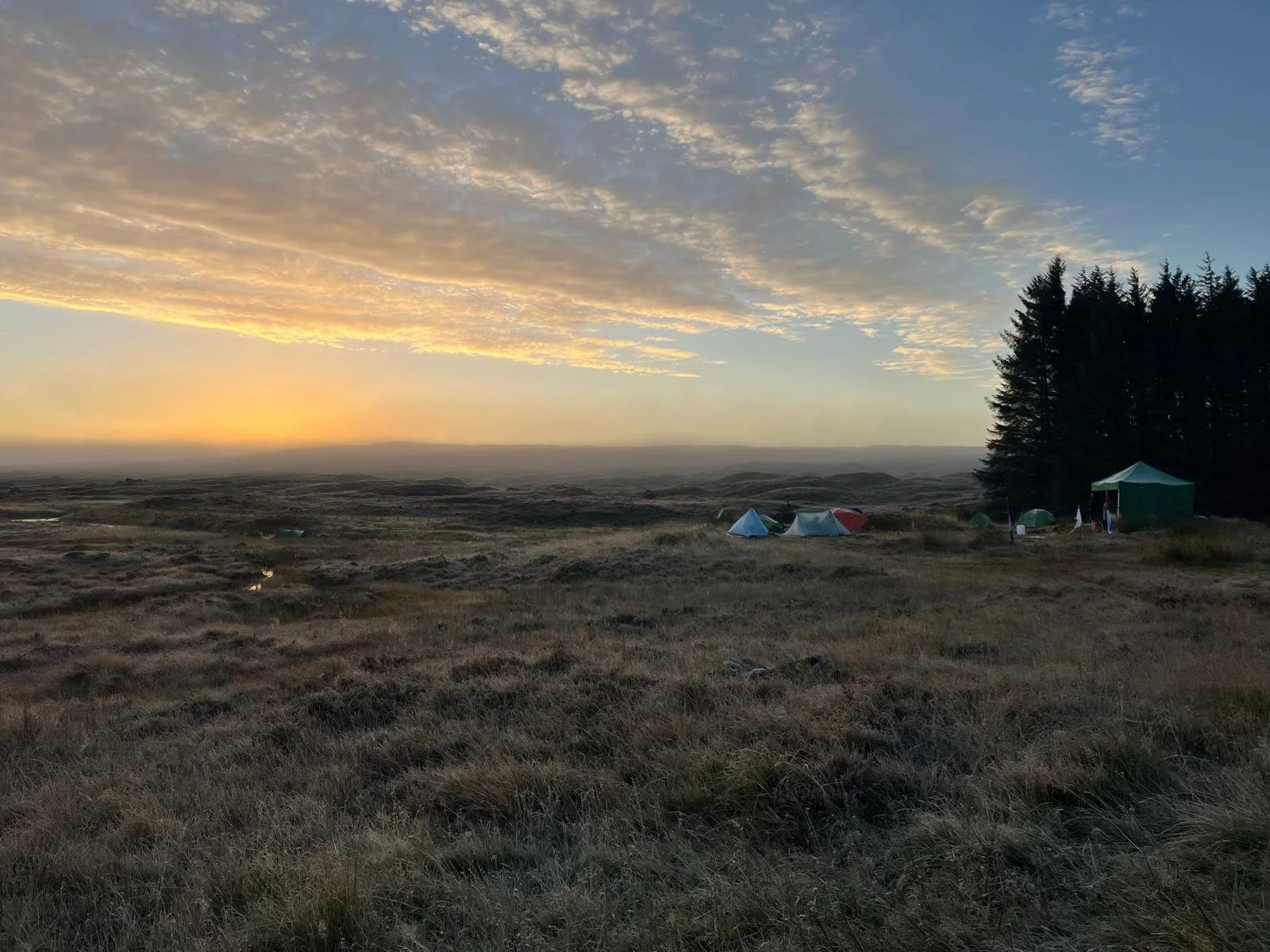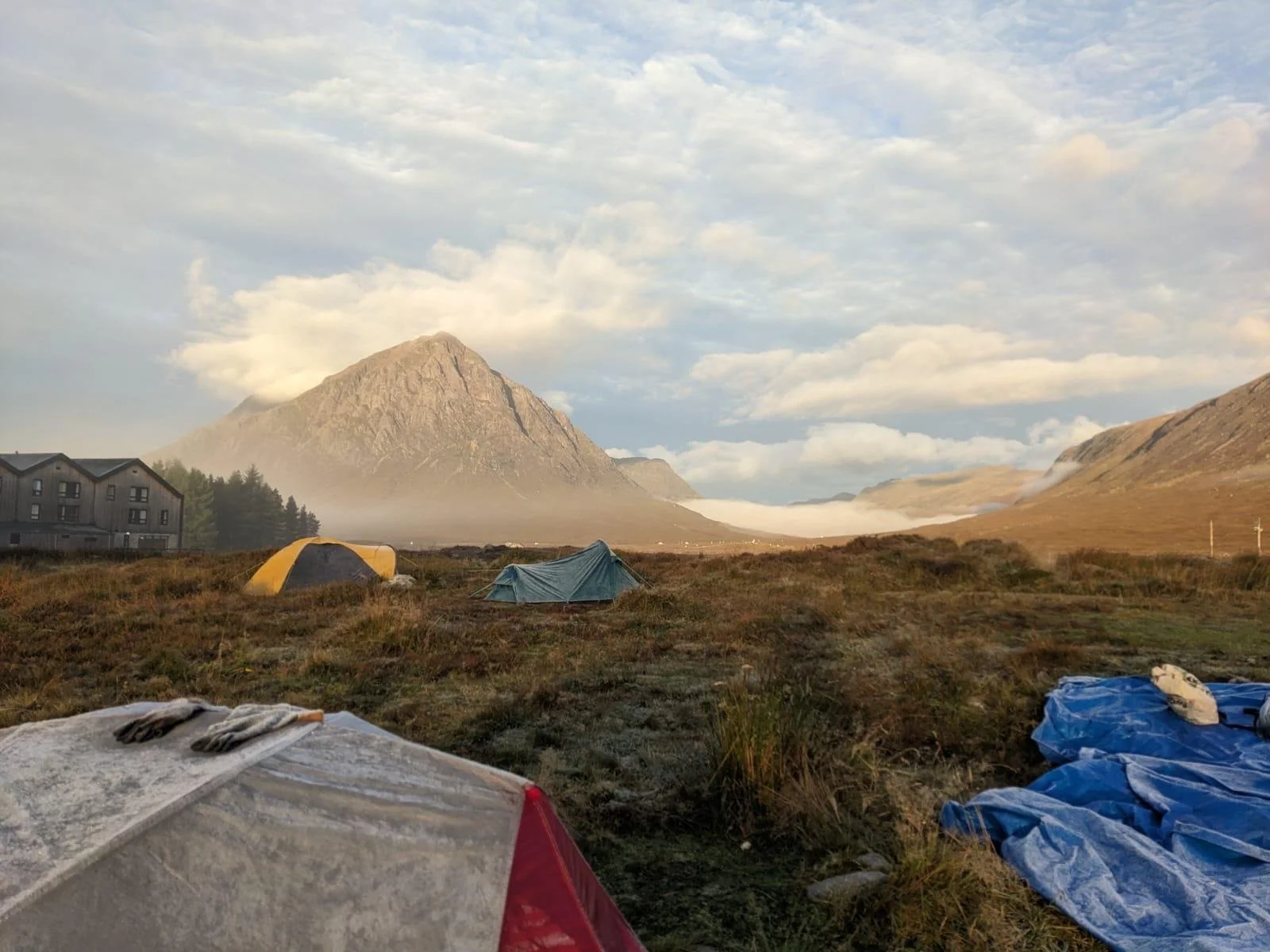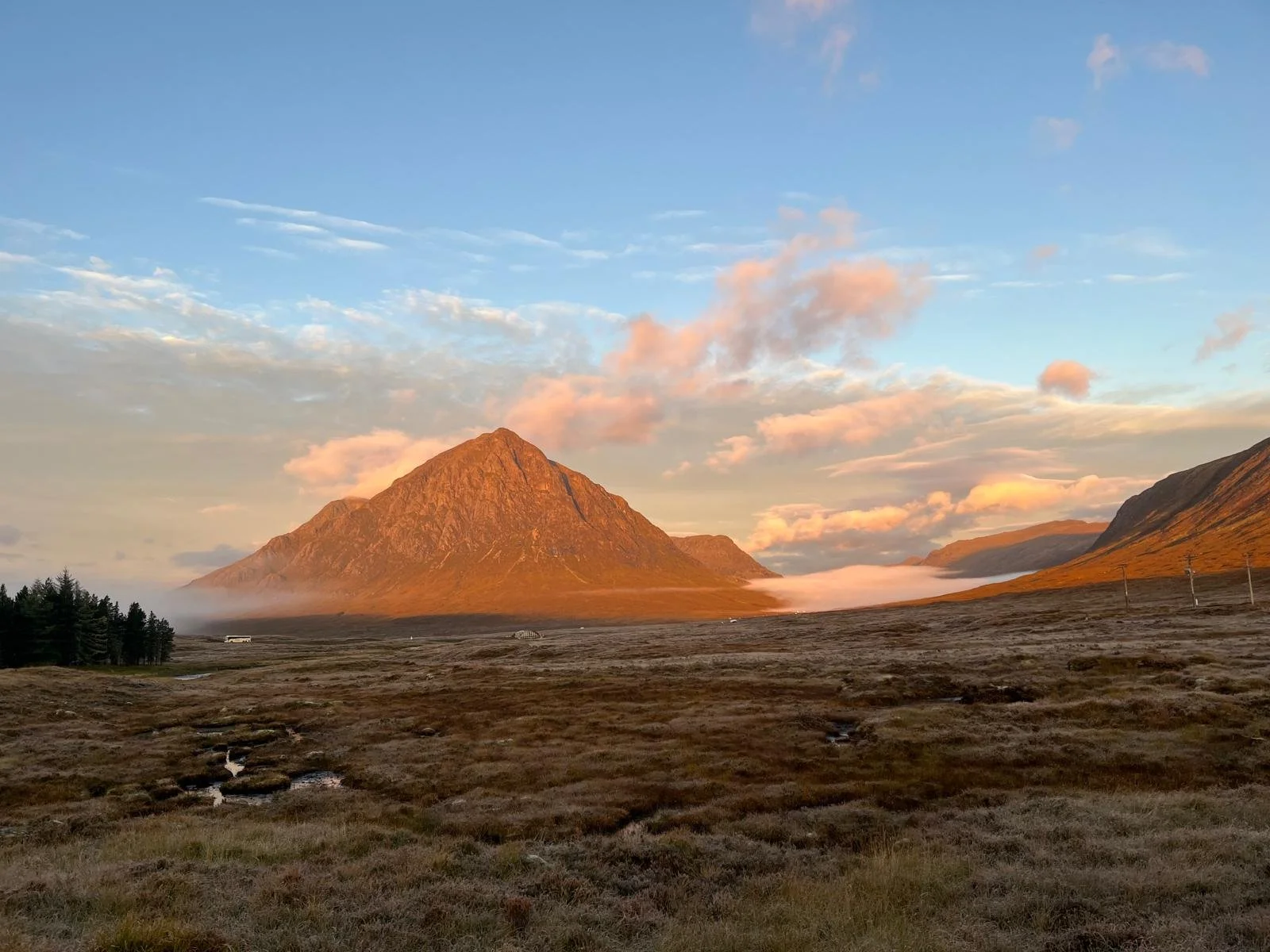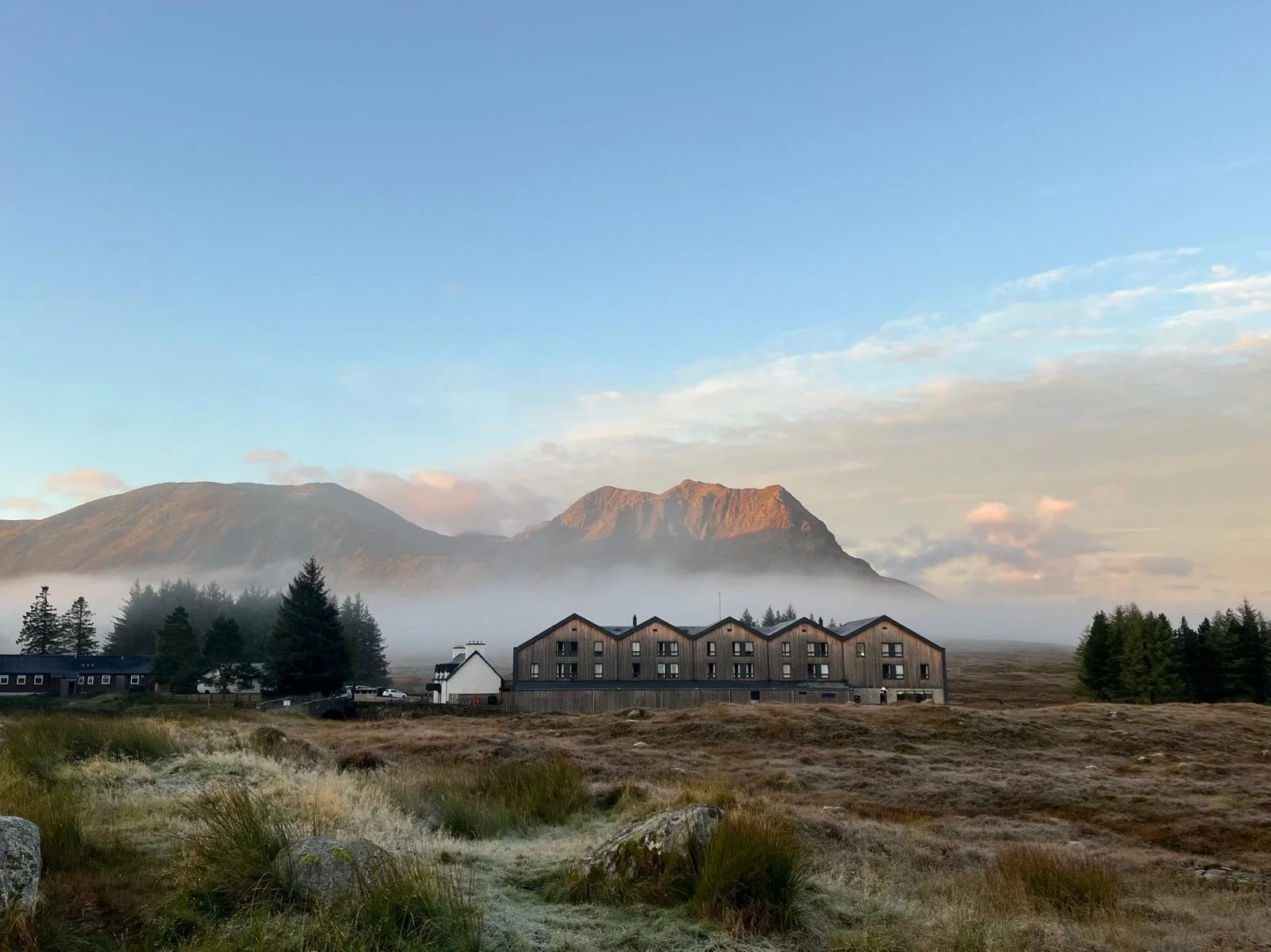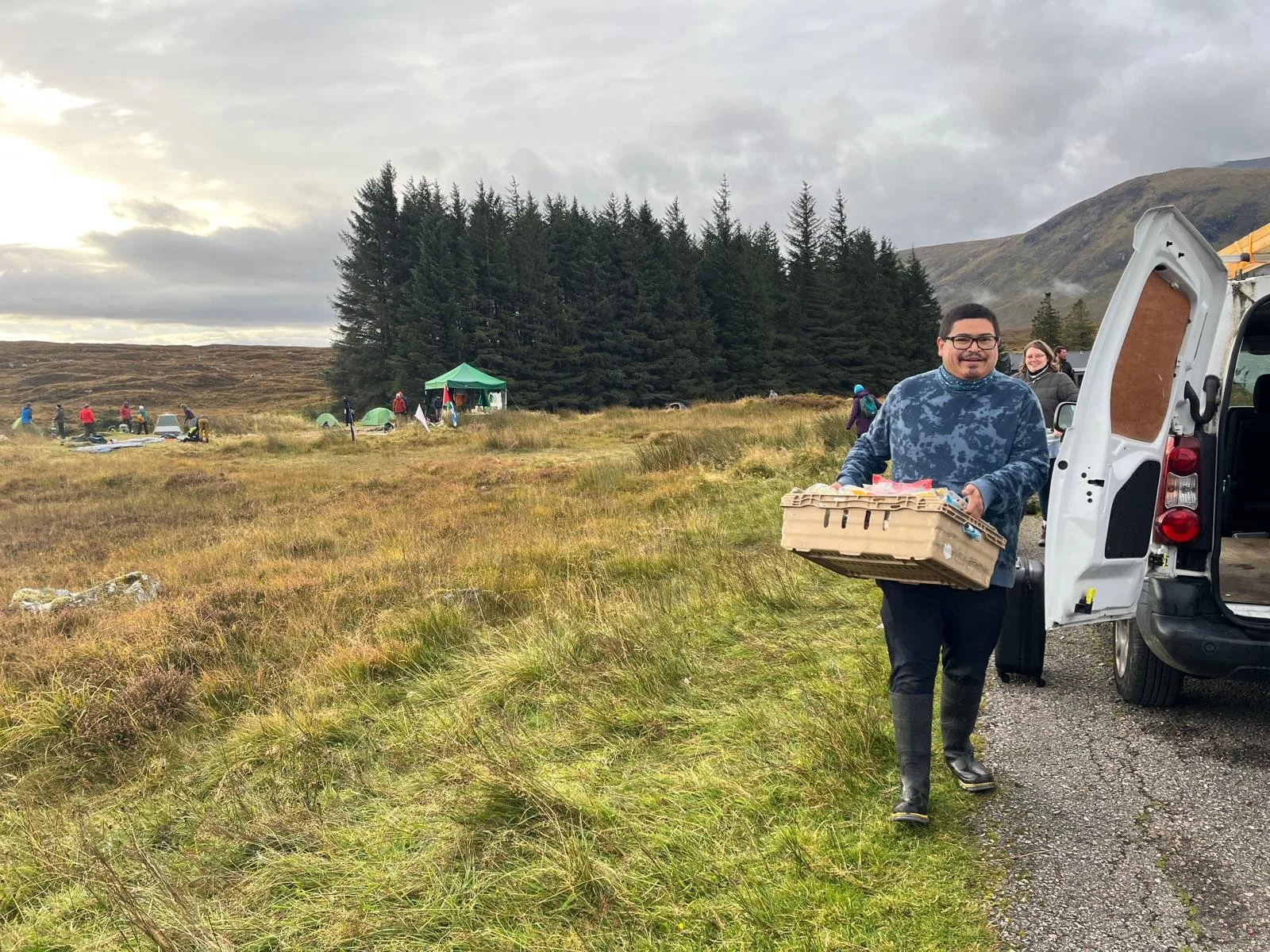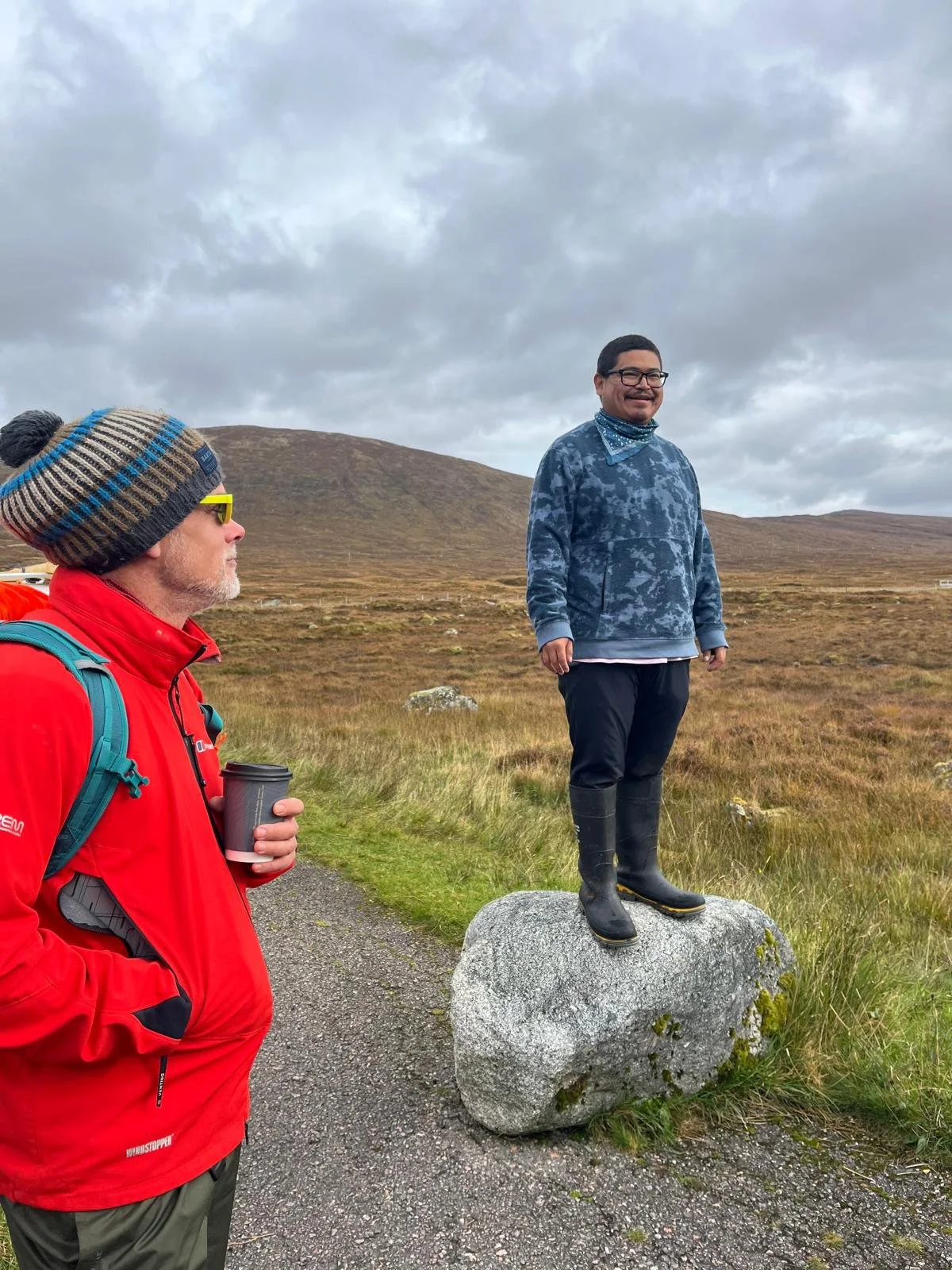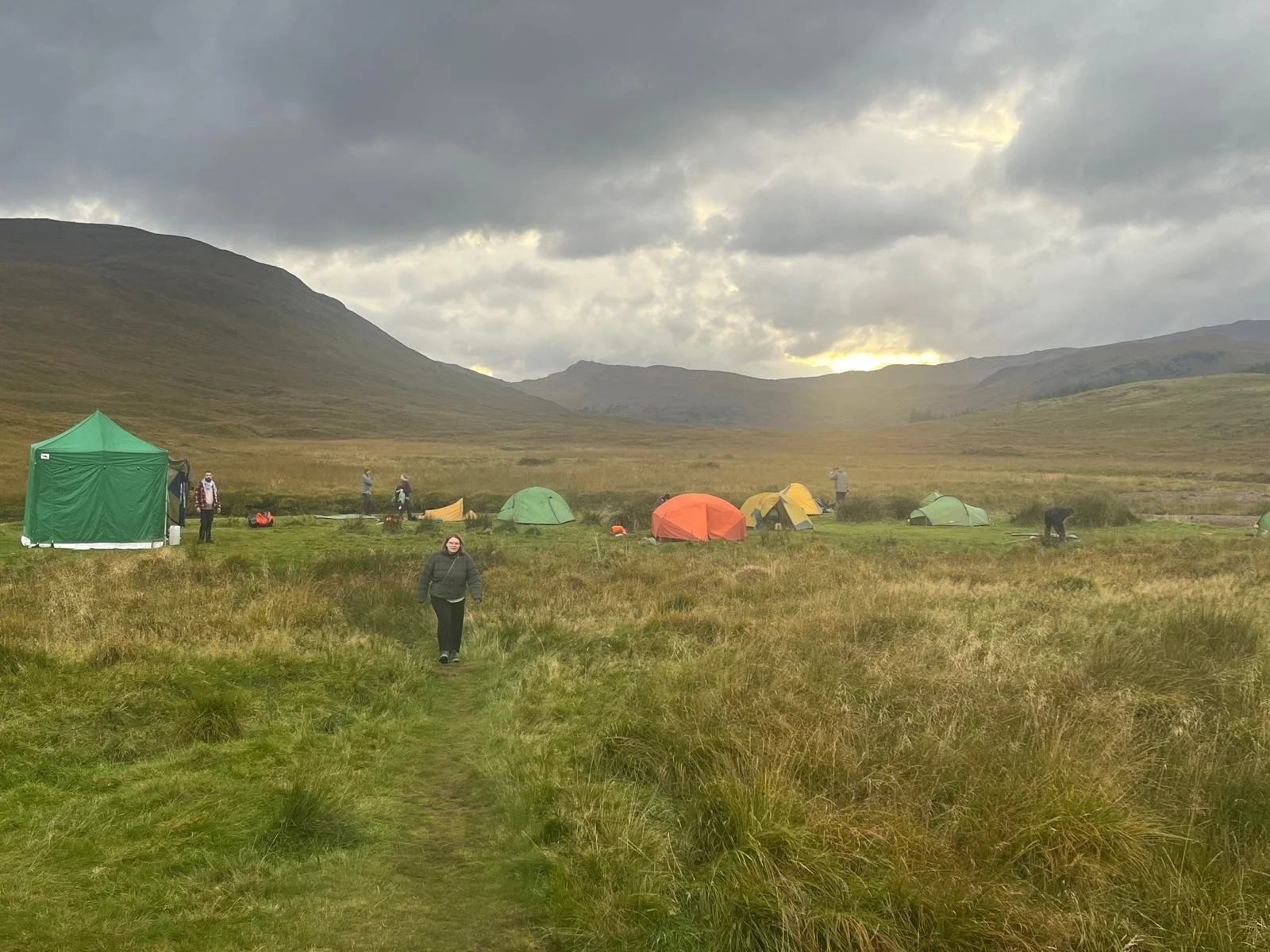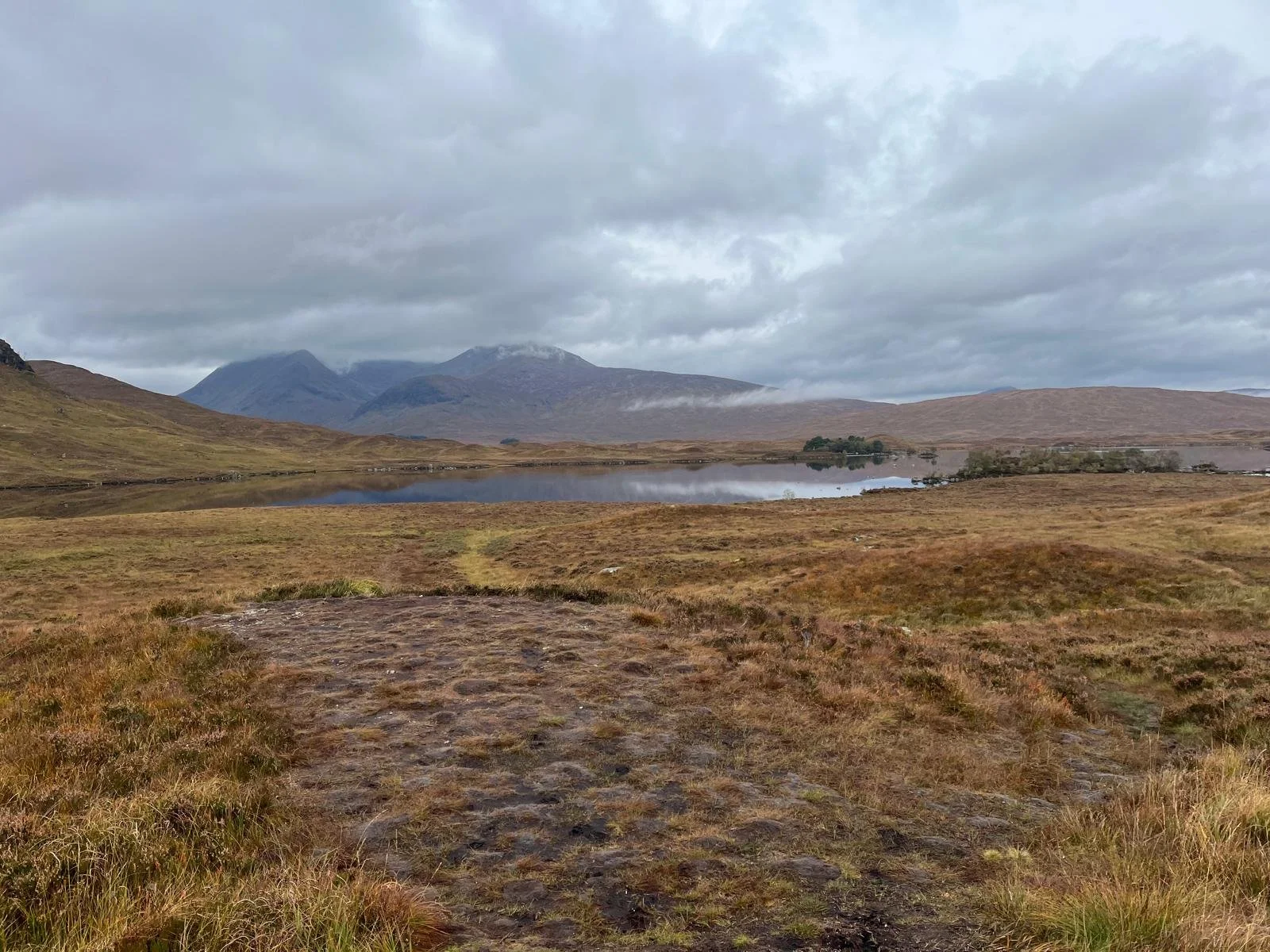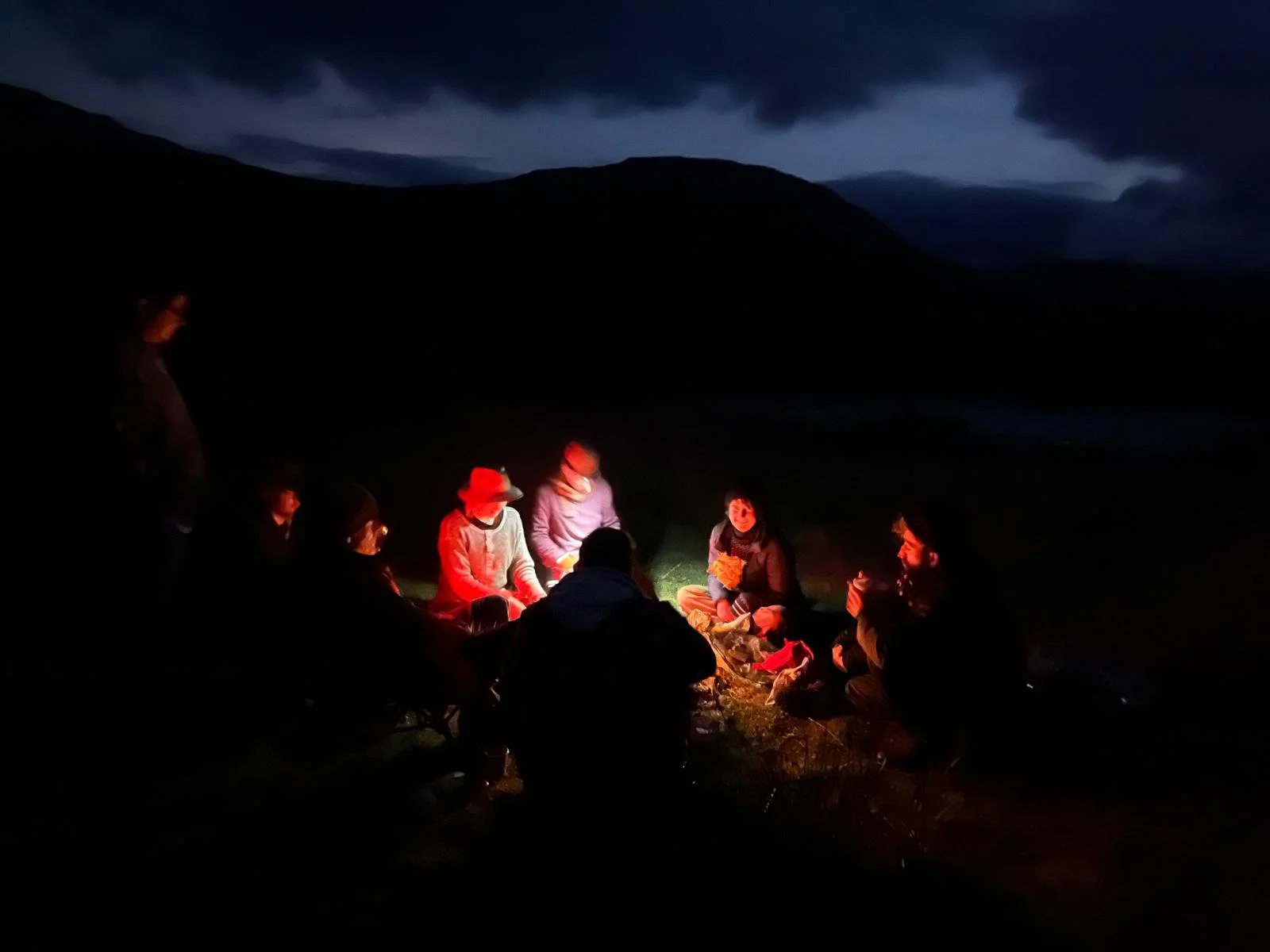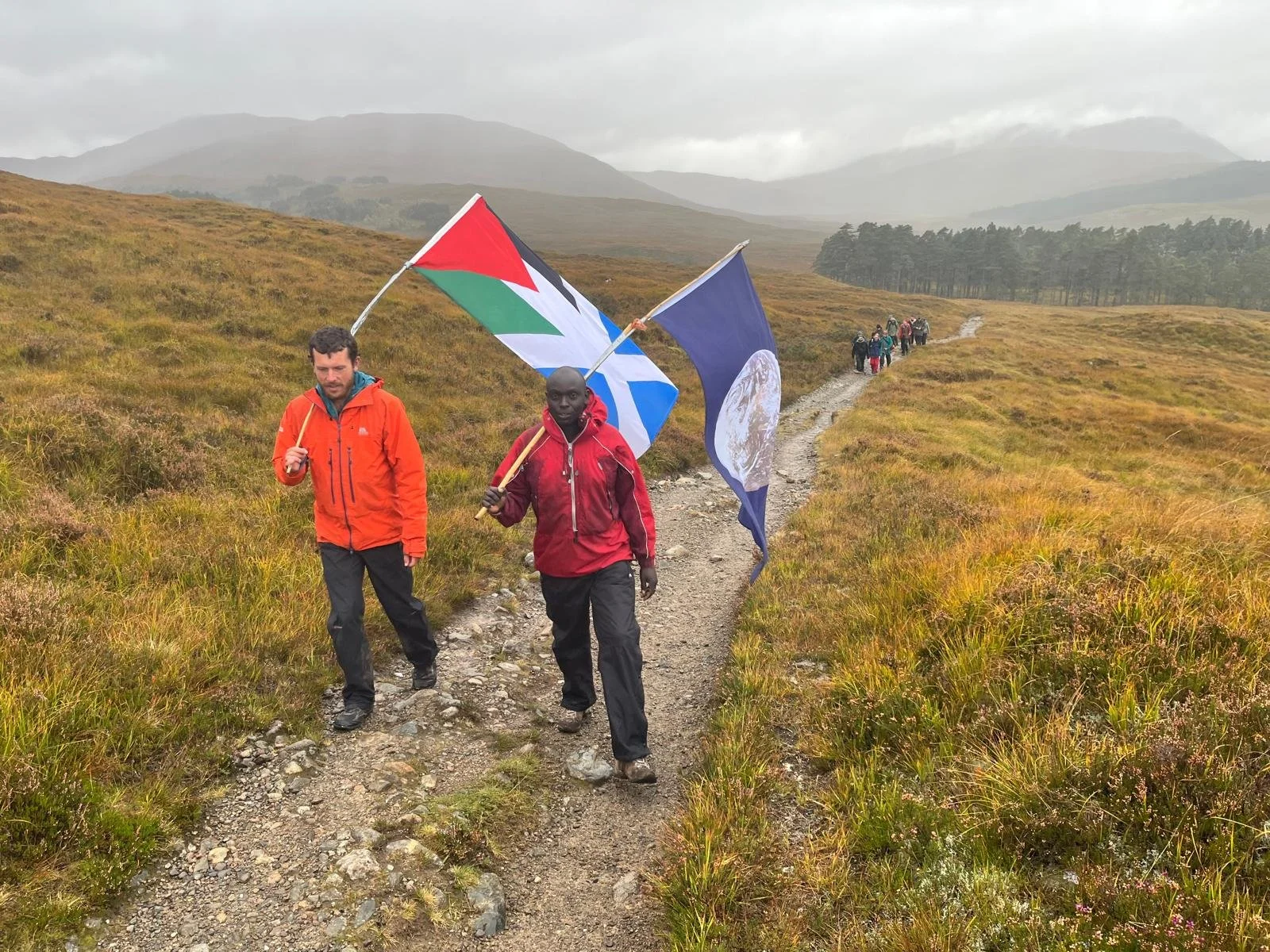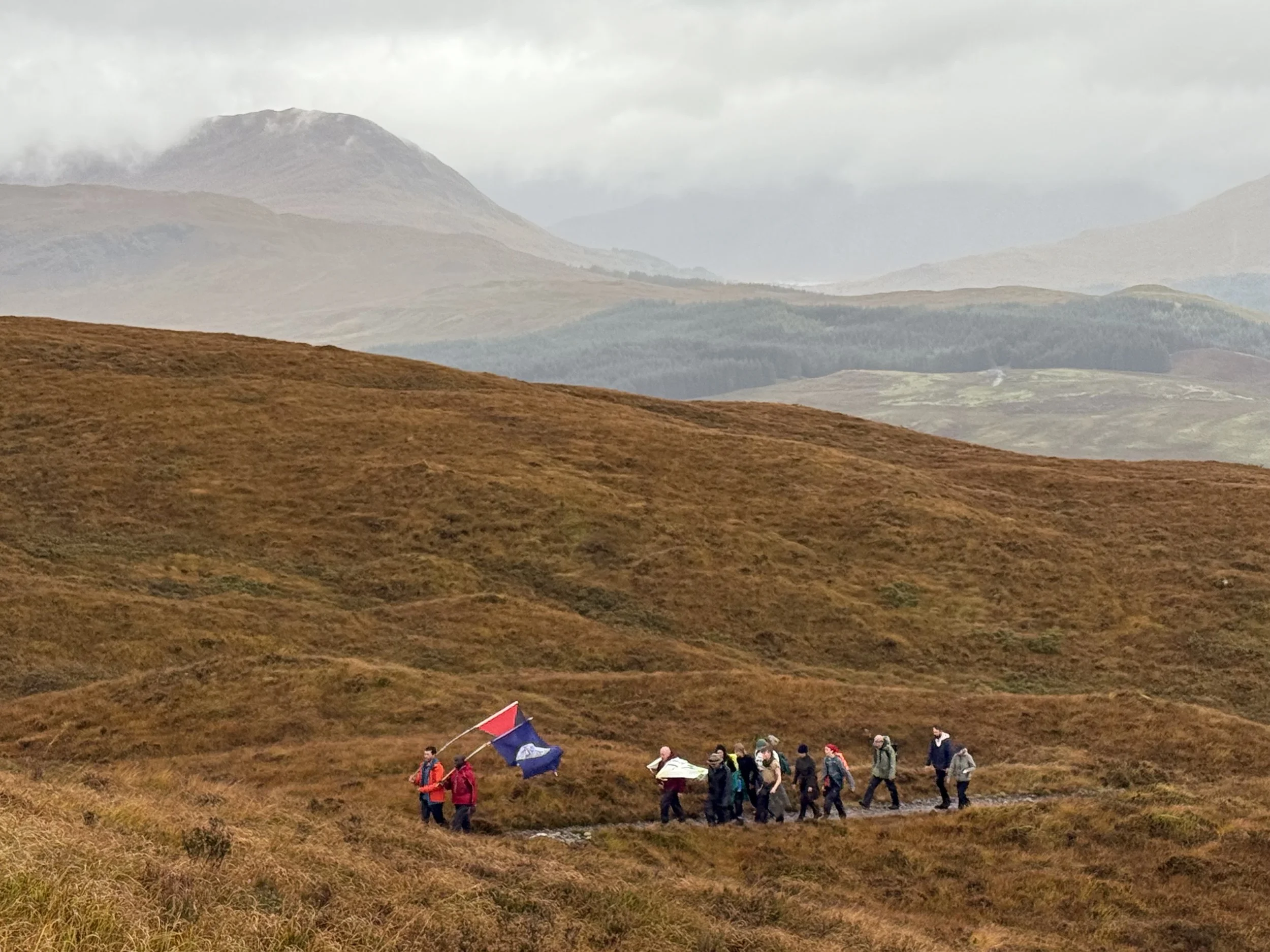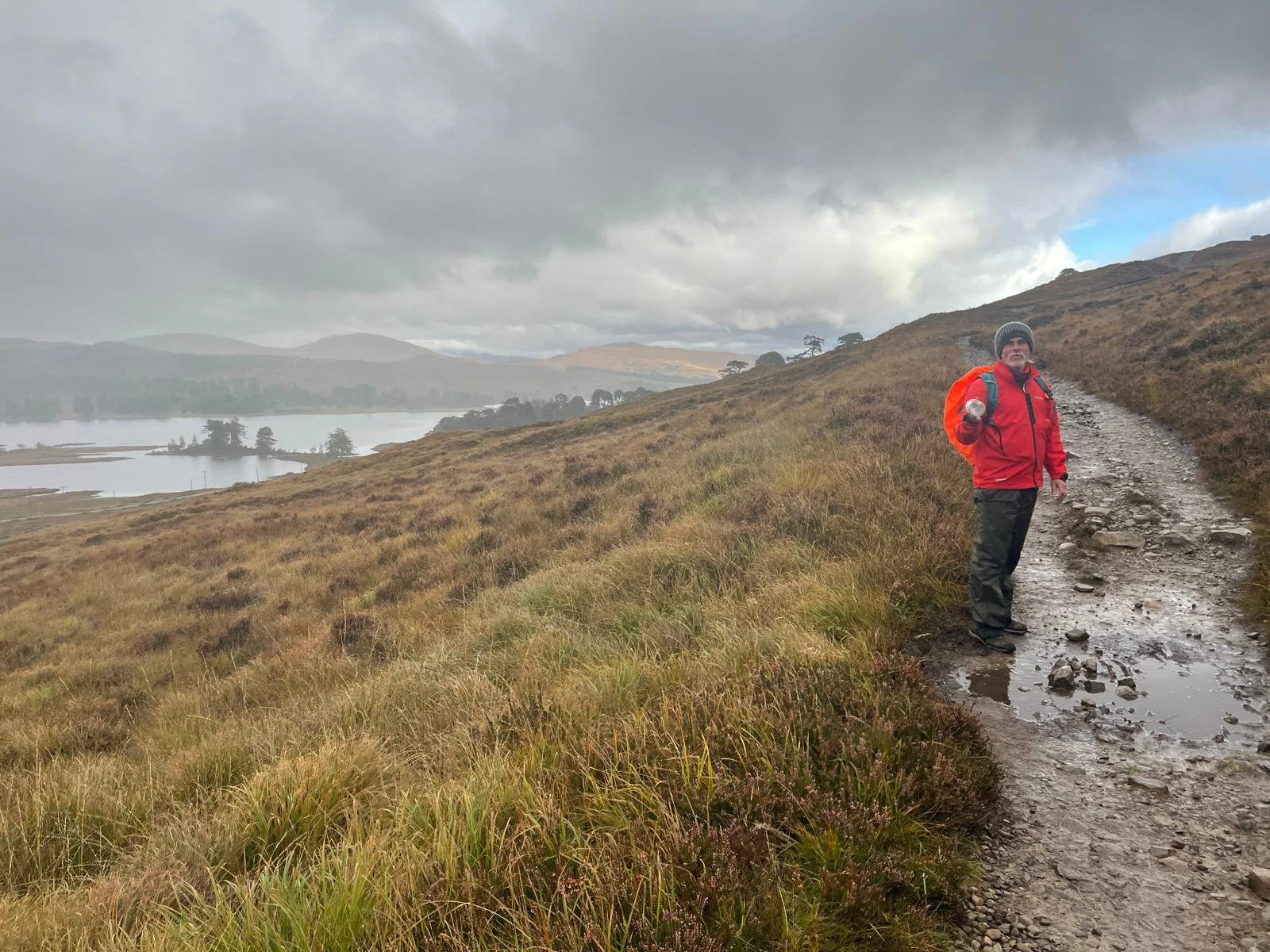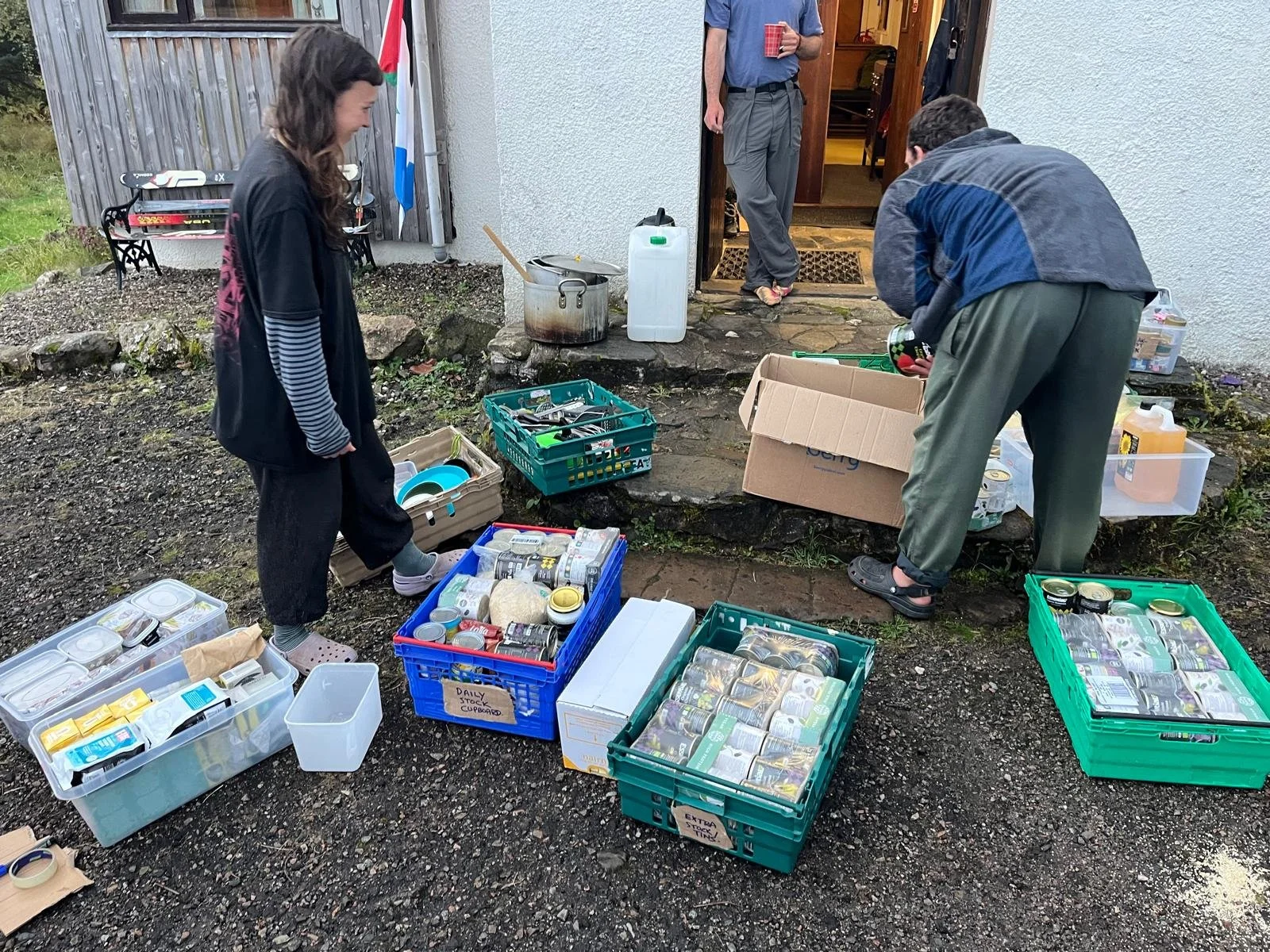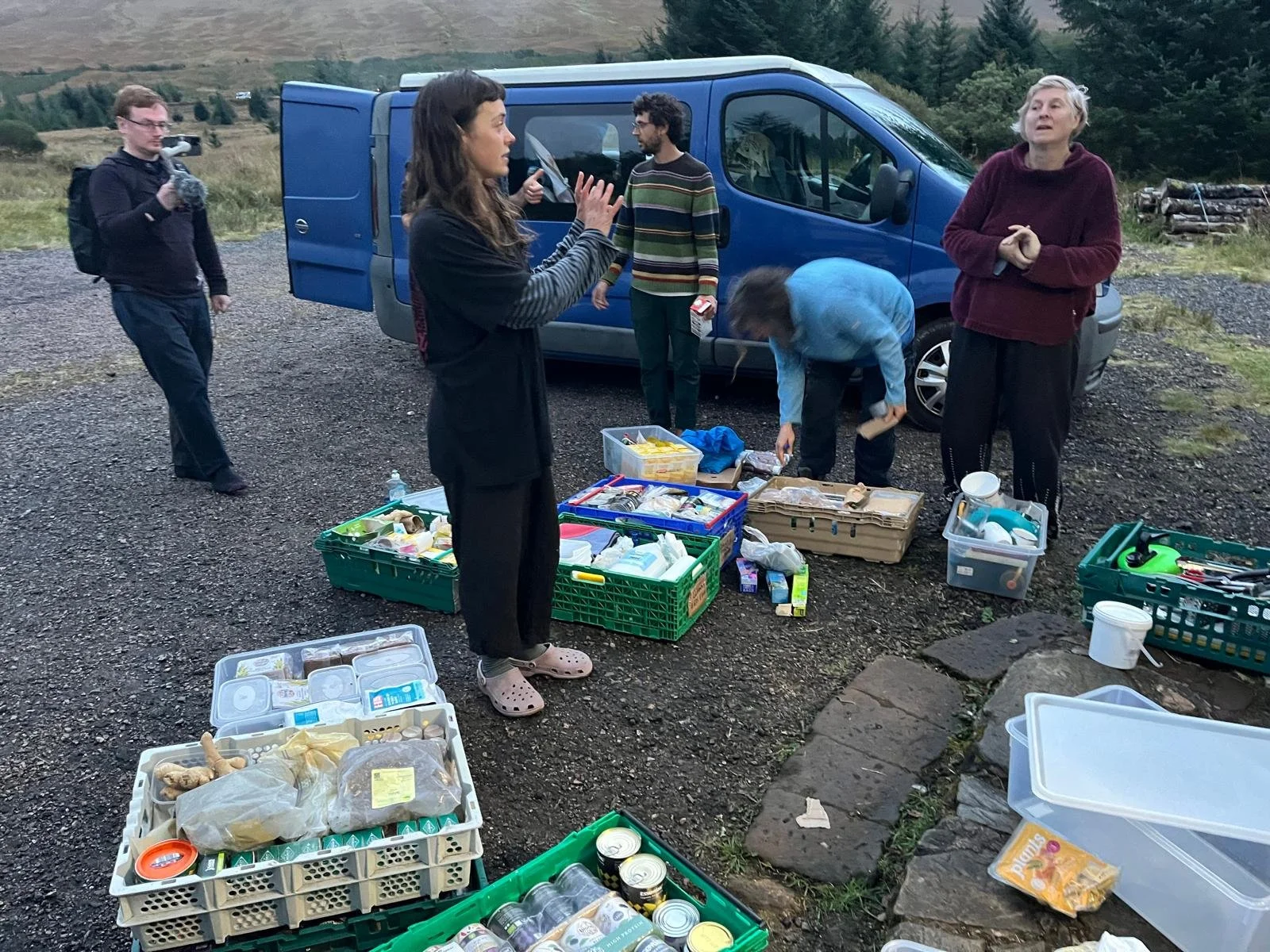Over Rannoch Moor - bogs, cobbles and song
Day 13 - Glencoe to Inveroran (10 miles)
The night was freezing with little sleep, and tents were icy in the morning.
We had camped just over the wee bridge behind the pub and hotel at Kings House, just beyond the ‘No Camping’ sign. It was totally weird being so close to a swanky £390 a night hotel, and even weirder that the staff were so friendly, so used to muddy camping walkers frequenting the pub, and then passing through it into the swanky hotel to use the warm warm toilets.
With everything finally packed away, 11 folk set off walking, with 5 of us in the two vans. One van headed to Kinlochleven for Alec to interview community endeavours there. In the other, Leyla and Justin headed to Inveroran.
We wended through the misty boggy moorland full of islands in the lochs, then set up camp (gazebo, toilet tent, tents) before waiting in the friendly Bridge of Orchy hotel. A cleanly place perfectly welcoming of muddy walkers.
We had pitched the tents by the wee stone bridge just north of Inveroran Hotel, which was momentarily closed as electricity workers and their vehicles, tried to get its electricity going again.
The walkers had crossed the cobblestoned old military road that had once been a Drovers road. It ran through bogs and lochs, crossing multiple old small bridges. They arrived in the evening under a cotton wool wet sky that had descended like a blanket, wet but way warmer than the night before. It sounds like there has been strong talk on today’s walk, including on how to respond to fascism.
In the evening 14 folk sleep by the bend in the river after some stunning singing.
Day 14 - Inveroran to Bridge of Orchy (4 miles)
Faced with walking to a costly campsite in Tyndrum, or walking the few miles to a suddenly available bunkhouse just beyond the Bridge of Orchy, we opt for a short walk today, then a 13 mile walk to Crianlarich tomorrow.
In the morning Kipchumba alights from the train at Bridge of Orchy and joins us. Kipchumba is from the Sengwer indigenous people of the Cherangany Hills in Kenya.
In all, 14 walk and 2 drive. It’s a surprising walk, sending us up the moorland hills to big views, while the train line and the busy A 82 are visible but not audible in the distance on the western hills.
We are moving into the third and final week. For the first, we were between 30 and 50 on Skye and Knoydart. Then our numbers dropped to those of us able to give the whole (or almost the whole) of three weeks to this. Now it feels like our numbers are picking up as Bob and Norah from Eigg, and Kat Jones, Lizzie and Chris from Glasgow join us.
We have a brief meeting after lunch where we decide to Assemble in the evening for practicalities and to discuss how we walk into Glasgow, and leave the larger Assembly on land justice until the Crianlarich afternoon.
Having had only a short walk, there is time for Poppy and Ben to lead in sorting out the myriad boxes of supplies that have vanished and jumbled in the vans, and in the evening there is time to talk by the welcome indoor fire.
The evening gathering begins with a go round (most of which I miss to pick up Lizzie and Chris from the train). What I remember from it is the need to move from mild land reform to radical land justice. However useful, reform tinkers round the edges and maintains the status quo. Land justice aims to challenge and transform the status quo.
After Ben outlines the route for tomorrow, and we finalise roles (who is driving, who helping the drivers) and clarify that the person carrying the Earth flag will be at the back of the walk, Poppy shares the ‘game’ for the following day’s walk.
It’s a game she and Kim and Jay devised at Inverie. We’ll all put a question in a hat, and then each will draw someone else’s question to consider on tomorrow’s walk.
After that Eva shares an idea she and Jay and Poppy had, which was for us to carry a myriad of flags as we walk into Glasgow on October 7th, and not just the blended Palestine/ Scotland flag and the Earth flag we are carrying. The idea is we carry any flag we identify with, however uncomfortably (e.g. an English flag, a Star of David flag), but not a flag of any existing State.
There is much discussion of what carrying such flags would mean, and whether such a focus on identity helps enable collective belonging, or distracts from structural change. In the end we think of words we’d want to carry (‘No more clearances’ etc) - so maybe a focus on banners and standards more than on flags. And we’re reminded that we’ll be walking into Govan with its strongly Unionist parts, and we decide to leave finalising the issue until we are closer to Glasgow.

